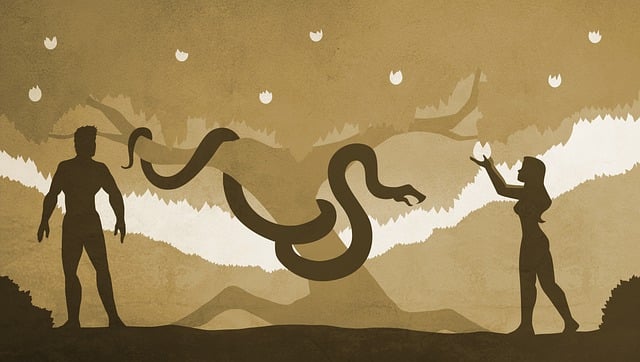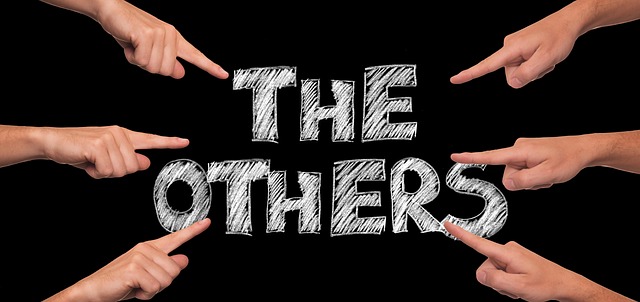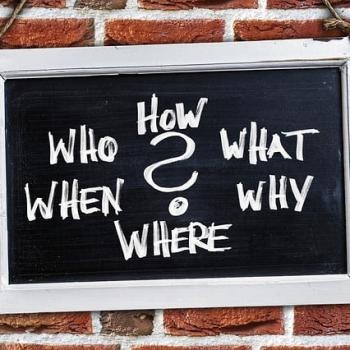![Man's finger pointing straight at the viewer [Picture courtesy of Pixabay]](https://wp-media.patheos.com/blogs/sites/2072/2024/01/pointing-4190930_640.jpg)
What Is Blame?
Bottom line, blame is assigning responsibility for something that happened. So, if an indoor pet cat escapes outside, the family wants to know who left the door open. A child may respond that his brother did it in an attempt to shift the blame to someone else because he doesn’t want to suffer the negative consequences of his actions. The response aims to avoid taking responsibility for what happened.
In The Beginning
Blaming others to avoid responsibility is a common human behavior which has taken place since the beginning of recorded history. The third chapter of Genesis, the first book in the Bible, provides a well-known example. Adam and Eve ate the forbidden fruit, and God came walking in the garden to chat with them about their disobedient actions. Eve blamed the serpent for deceiving her to get her to eat the fruit. In turn, Adam blamed Eve for giving him the fruit and indirectly blamed God for putting Eve in the garden with him.

Blame And Antisemitism
Many believe the concept of blame may be at the root of antisemitism. That term means the hatred of or prejudice against Jews. And with antisemitic incidents rising yearly in the US, understanding what gives rise to antisemitism is insightful.
What are Jews blamed for? Some Christians place the responsibility for the death of Jesus on them, a powerful reason for those Christians who embrace antisemitism. Unfortunately, this pinning of blame can give rise to hatred and violent acts.
Why Blame Others?
Psychologists characterize blaming others as a defense mechanism. Engaging in such behavior helps the blame-shifter avoid experiencing negative emotions such as guilt and shame. Because blame-shifting reduces a person’s negative emotions, unsurprisingly those who are poor regulators of their emotions prefer to point a finger at someone else as opposed to accepting responsibility.

Dangers Of Blame-Shifting
Failing to take responsibility for our actions can be dangerous. Consequences result when we wrongfully attempt to put the blame on someone else. Whatever relationship the blamer has with the person he points the finger out will suffer, if not end. The blamer often develops negative emotions toward the person to whom he points the finger of blame such as anger, resentment, and hatred. This negativity is not a positive result.
The opportunity to engage in healthy, accountable behaviors slips away when blame is shifted. Everyone makes mistakes, so having made one is simply being human. Blaming or shaming ourselves or others for not being perfect is unproductive. Having made a mistake allows an individual to learn from it. Avoiding taking responsibility removes the chance to for a learning opportunity.
Pointing the finger of blame away from ourselves also destroys an opportunity to engage in healing. Blaming someone else for our thoughts, emotions, and actions keeps an individual from accepting that thoughts and emotions are his own and that he is responsible for his own actions. Recognizing that he has responsibility allows a person to see he has some control of his situation and can exercise it.
Blame And Faith
Christians attempting to blame-shift is as laughable as Eve blaming the serpent and Adam blaming Eve for the forbidden fruit’s consumption. Our all-knowing God is clearly aware of who did what and will hold the correct person accountable no matter who we are pointing the finger of blame at. Holding antisemitic beliefs because Christians blame the Jews for Jesus’ death is also flawed thinking. Jesus died bearing ALL our sins—that was His purpose in coming to this Earth. So the thumb of the blame finger pointer is pointed right back at Him if he points at Jews.

The blame game shifting responsibility to others is dangerous. The blame plan devised by God is not only safe, but it offers us eternal life with Him.














